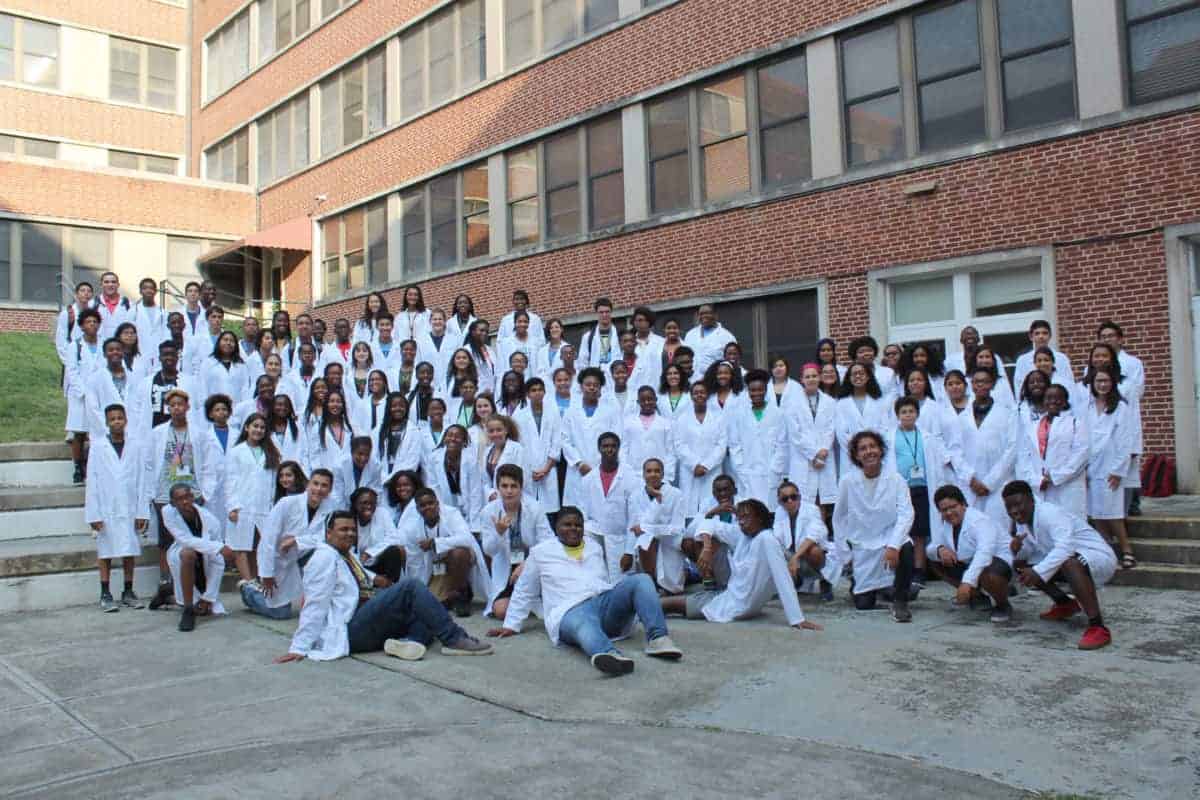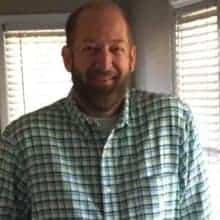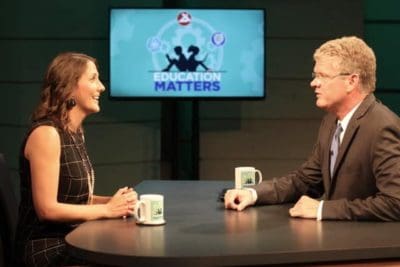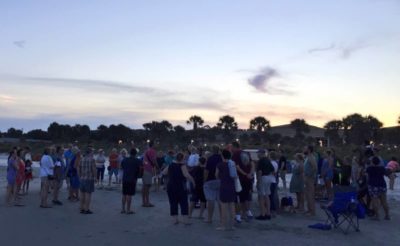The North Carolina School of Science and Mathematics is committed to building a pipeline of high-quality science, technology, engineering, and mathematics students. A special strategic focus of the public institution is fulfilling this promise to North Carolina students from underrepresented groups.
A great example of these efforts is the summertime Step Up to STEM program, which wrapped up for 2018 on July 20 with a recognition ceremony for students. This one-week residential program for rising ninth-graders from across North Carolina is inspiring. This summer, 50 students engaged in three courses over six hours each day: The Heart of Mathematics, Biomedical Engineering and the Heart, and Plant Biology and Vertical Farming.
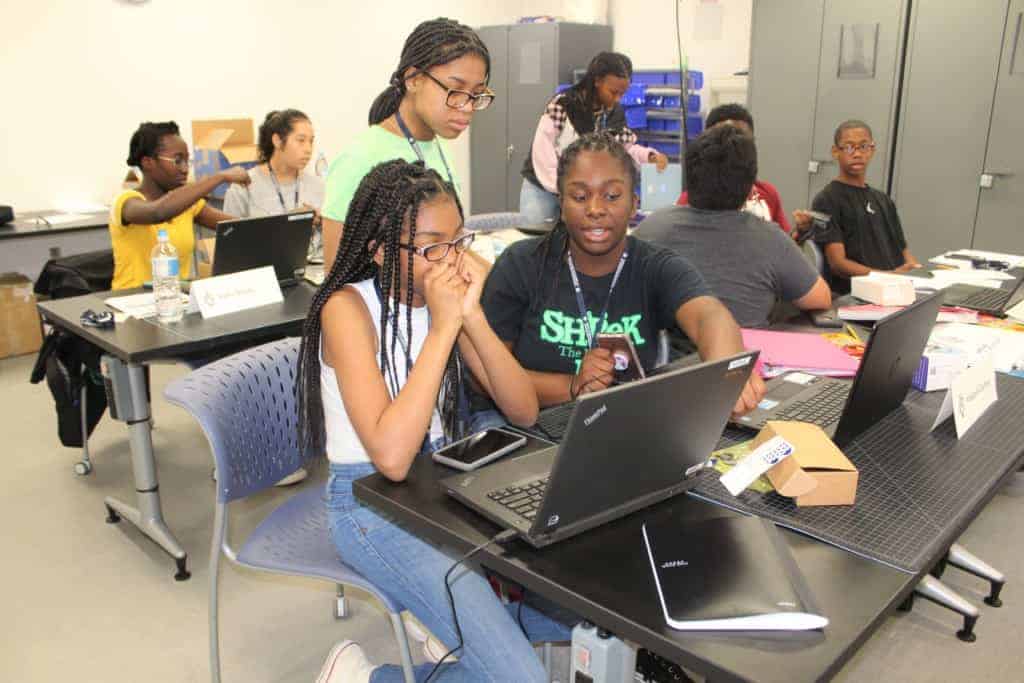

The hope is that many underrepresented minority students will gain the confidence to apply to the school’s 11th and 12th grade online or residential program of study, says Kendall Hageman, the school’s director of distance education and extended programs. The program started with seed money from Burroughs Wellcome Fund, NC GlaxoSmithKline Foundation, Bayer USA Foundation, and Duke Energy Foundation.
While NCSSM now fully supports the program, the school is seeking funding to expand the program this year to include continued support throughout the academic year, a second year residential summer experience focused on science communication and research, and a year-long mentorship opportunity with NCSSM residential and online students representing the school’s Summer Leadership and Research Program.
“We’ve proven we can ignite their passion for STEM education,” Hageman said. “With a little extra investment, we hope to build a solid pipeline to NCSSM and to other STEM opportunities in their college and career years. Our most exciting idea for the coming year is to pair each Step Up student with a mentor who is already enrolled at NCSSM. This personal, near-peer connection has the power to be transformative — and to keep the idea of being a student at NCSSM fresh in their minds.”
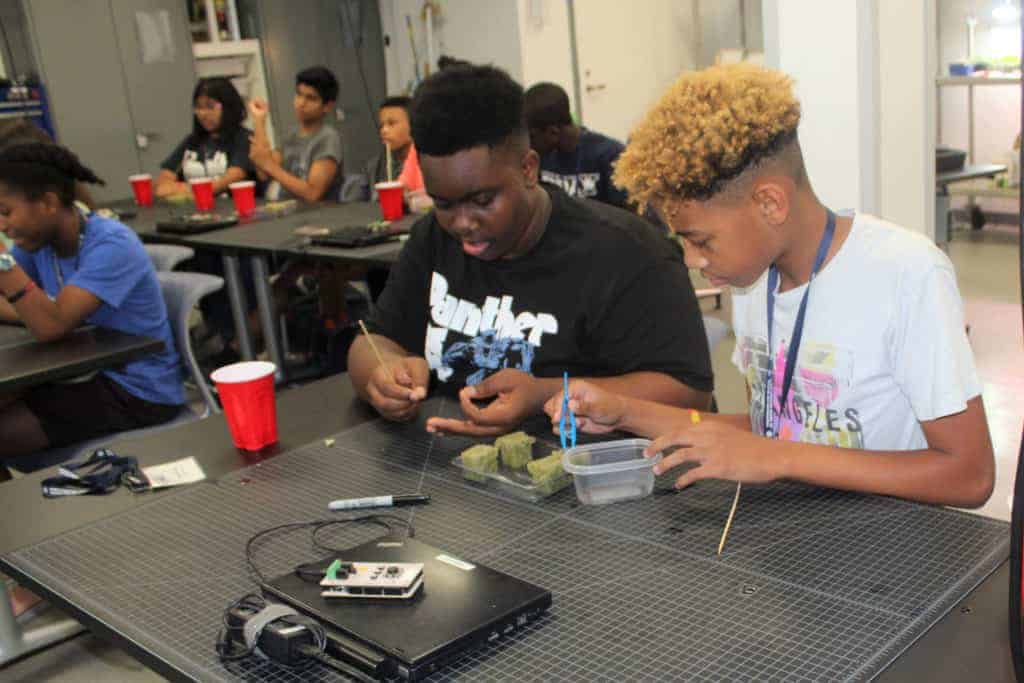

Addressing students and parents at the July 20 recognition ceremony was Isaiah Hamilton, a rising junior in the NCSSM residential program and an alumnus of Step Up to STEM.
“Many of the characteristics we focus on in the summer leadership program were first introduced to me in Step Up to STEM,” he said. “The program taught me how to step up to the occasion, how to step up to adversity, and most importantly, it taught me how to step up to my future. I can say without a doubt, the program your children have participated in this week put me on the track to becoming the individual I am today.”
This summer, students were exposed to STEM concepts and thinkers intended to energize their interest in these disciplines. They had the opportunity to hear from Lucero Galvan, an IQVIA researcher here in the Triangle.
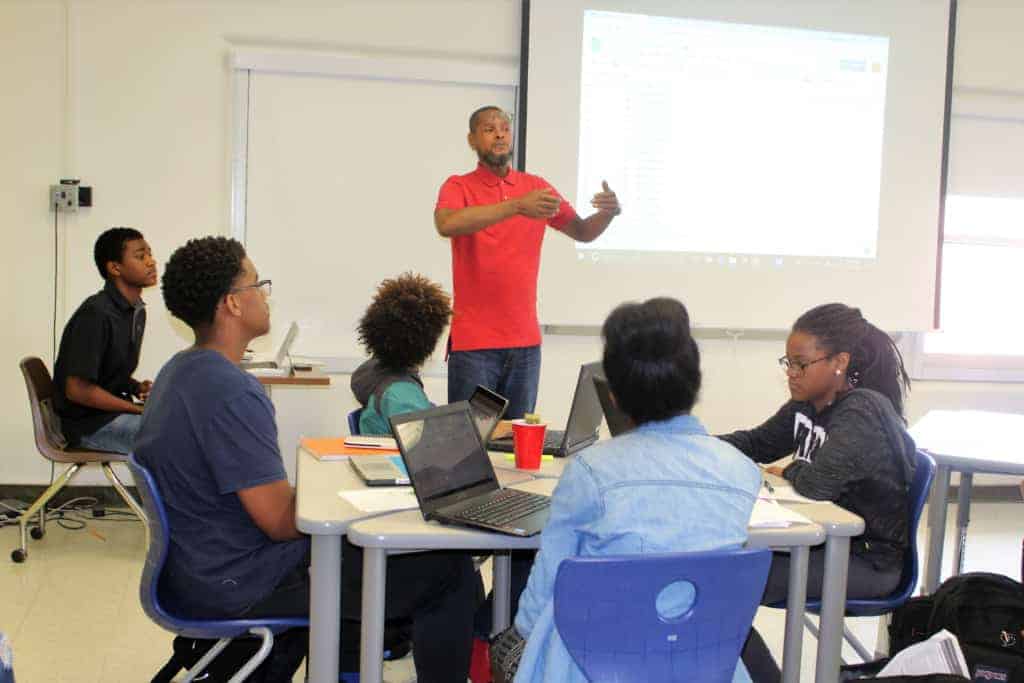

A North Carolina State University alumna and Goodnight Scholar, Galvan encouraged the students to “reach out of your comfort zone. Eventually you will become comfortable with being uncomfortable. And don’t forget to share your successes with those who love you.”
The program is successfully identifying promising students from underrepresented groups, instructors say.
“Step UP to STEM students impressed me on the first day of my course,” said Jon Davis, instructor in the plant biology course. “They were already aware of food security issues in their hometowns. They eagerly got to work growing plants and programming microcontrollers. They helped each other during class and celebrated solving problems. I am blessed to participate in the education of these young leaders.”
Dr. Letitia Hubbard, the instructor of the biomedical engineering course, agreed.
“The Step Up to STEM program is an incredible opportunity for rising ninth-graders to get exposure to advanced STEM courses and technology and prepare for their future at a very pivotal transition time in their academic lives,” she said. “The Step Up to STEM program is unique because it allows students to develop not only academically, but also personally and socially as they explore their independence on the campus of NCSSM and learn from their instructors and their peers.”
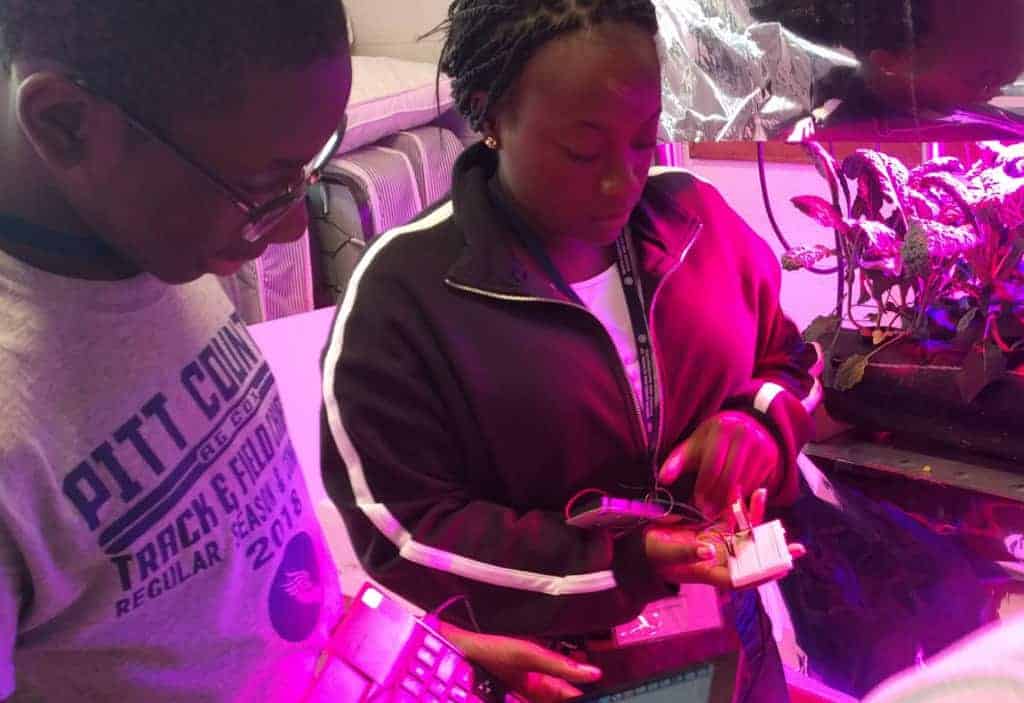

Hubbard, a native of Huntsville, Ala., worked as a research associate at Duke University (where she also received her doctoral degree in biomedical engineering), with a focus on cardiac electrophysiology, all before joining the faculty at NCSSM.
The chance to interact with such knowledgeable instructors is inspiring to participants — and it got many of them thinking about attending NCSSM. One girl’s mother wrote this to Hageman after the weeklong experience:
“I would like to thank each of you for the well-rounded educational experience that (my daughter) had last week at Step Up to STEM. She enjoys all things related to science, and after last week, she knows there are more opportunities than ever in STEM fields, especially for minorities. She is hopeful for full-year expansion and the opportunity to return to Step Up to STEM for next summer, and she is also looking forward to applying to NCSSM her sophomore year.”
Says Hageman, “That’s exactly what we want. North Carolina needs these talented thinkers in STEM careers in the future, and it’s so gratifying to see them choose that path.”
